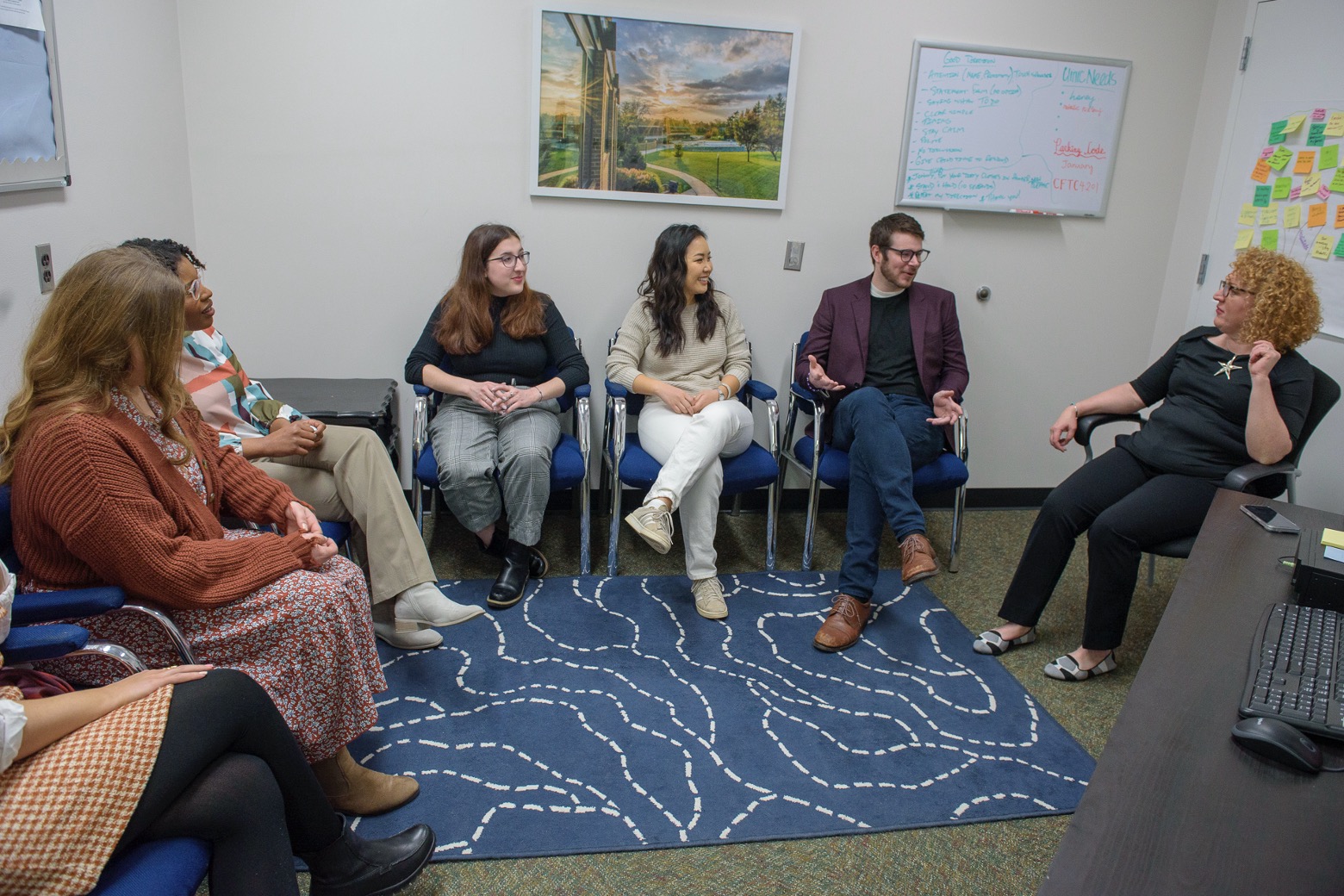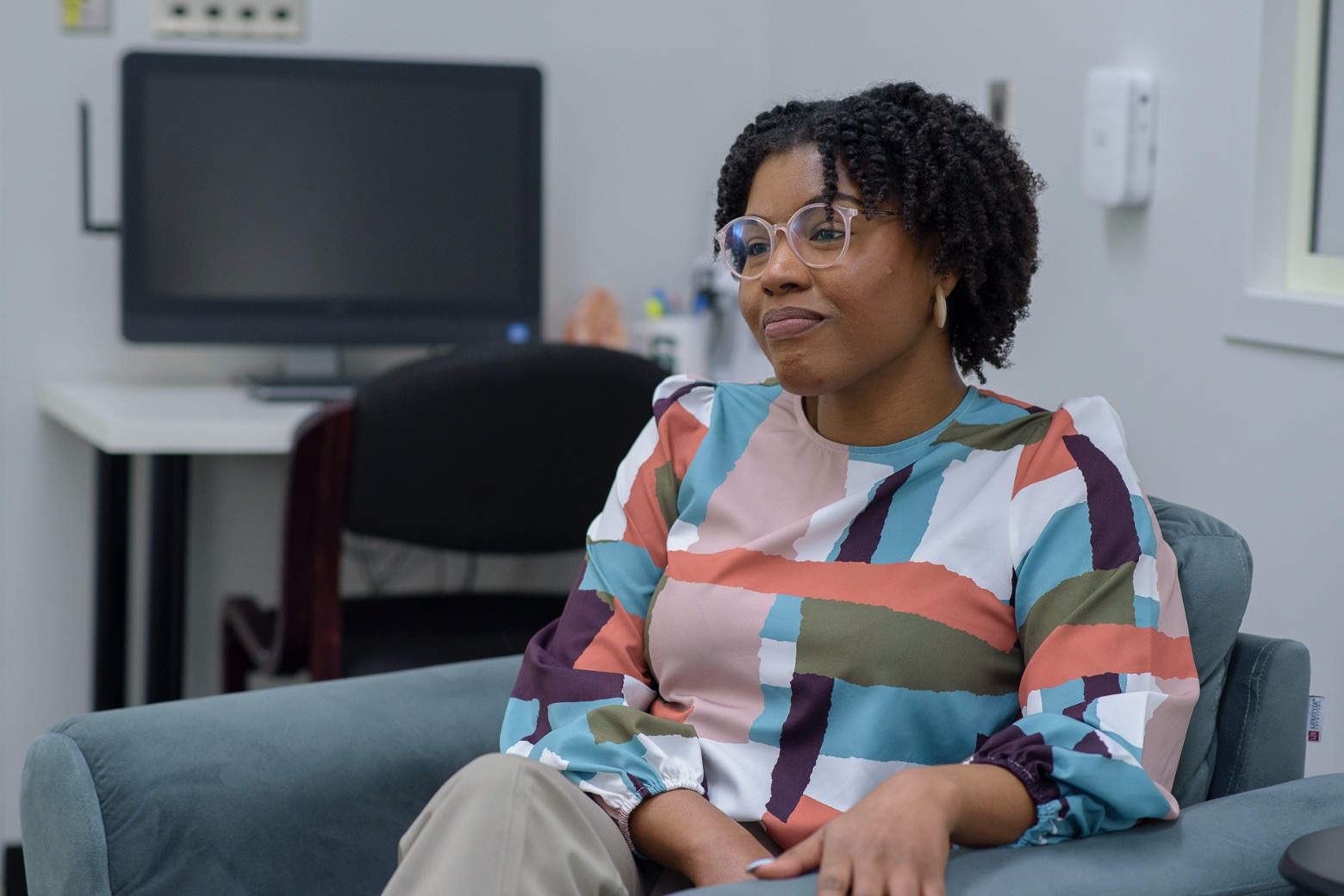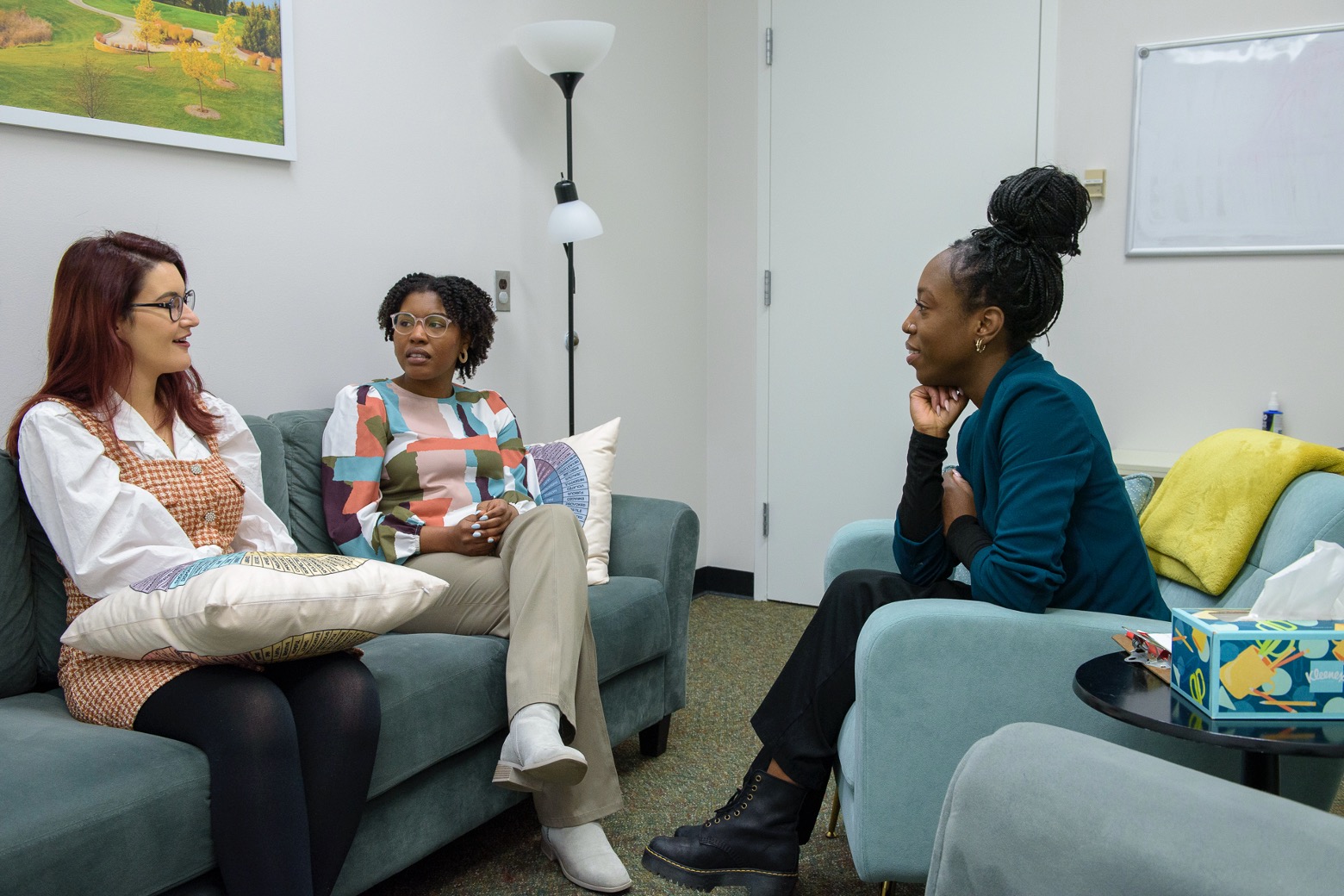
The MSU Couple and Family Therapy Clinic serves individuals, couples and families in the Greater Lansing community and is the primary training site for graduate students in the Couple and Family Therapy Ph.D. program in the MSU Department of Human Development and Family Studies.
“All of our therapy services are based in systemic, evidence-based interventions,” said Erica Mitchell, CFTC director. “‘Evidence-based interventions’ means that the therapy models we use are supported by research, and ‘systemic’ means our approach with clients focuses on the context of their lives and the relationships they have. We like to say that ‘the relationships’ are our clients.”
Meeting clients where they are
In 2023-24, the clinic welcomed 206 new clients (in addition to the clients they were already serving). They had three new therapists, six returning therapists and seven undergraduate interns.
“Our therapists, our supervisors, and our clinic staff are very passionate about helping the clients that we serve, and they are very dedicated to walking alongside our clients and helping them achieve their goals for therapy,” Mitchell said.
“We treat various clients with diverse identities and with different presenting symptoms, and we have a great staff of therapists here with a lot of various training in different therapeutic modalities,” said Deja Young, therapist and CFT doctoral candidate. “So, if you are seeking help, reach out to join our waitlist, and we see individuals, couples and families so you're more than welcome here.”

The services at the clinic hope to meet clients where they are, both in their personal therapy goals but also in accessibility. The clinic’s mission is to increase equitable access to therapy through offering low-cost services.
“Operating on a sliding fee scale helps us reach clients in need who may not be able to access services elsewhere in the community,” Dr. Mitchell said. “Our clinic highly values diversity and inclusion and creating a warm and welcoming environment for our clients and our staff.”
Temple Odom, is a MSU HDFS faculty member who provides supervision and mentorship to graduate student therapists.
“If you’re wondering if you should be at this clinic because it is a teacher clinic: most of our students come here with a master’s degree in a clinical field,” Odom explained. “Even though they are doctoral students, they're usually very experienced and they get incredibly close and attentive supervision. It's a really wonderful complement of having research-based practices and an affordable way to get family and couples work, which is sometimes hard to access out in the community.”
“Everyone here at the clinic does such a great job of creating such a safe place for people to come and be who they are without judgment, and to have that space to be vulnerable and work on oneself,” said Tanner Hickman, clinic coordinator and CFT doctoral candidate. “Just helping people feel seen and heard is a big thing that we take pride in. And I think that we do that really well here at the clinic."
The Student Experience
Therapists in the CFT program are supervised by faculty who are licensed marriage and family therapists and American Association for Marriage and Family Therapy approved supervisors.
“I think our clinic is a community of students and faculty who really value each other. There's a high level of respect and appreciation for each person's contribution,” Mitchell said.
There's an intentional emphasis on teaching and training in the clinic: students must be enrolled in a practicum course to see clients, and each practicum course is taught by a CFT faculty member. Supervising faculty meet weekly, both individually and in groups, to talk about the therapists’ cases.
"I really enjoy our group supervision,” said Pendo Galukande, a second-year doctoral student. “I learn a lot from the other students both clinically but also culturally.”
In addition to courses and weekly meetings, supervisors watch therapy sessions live and give therapists feedback, either in the middle of a session or at the end of session.
Lekie Dwanyen, is an assistant professor in the CFT program and clinical supervisor.
“It's really meaningful for me to be able to help train and support students in developing their own clinical skills, especially family therapy skills,” she said. “We really value relationships in context and culture, so any training around these elements is very meaningful to me personally. And professionally, we focus on disparities and making mental health care very accessible to different communities - so that piece is also incredibly meaningful.”
“Our model of teaching and training is really based in research evidence, and that's an important part of the clinical work and our approaches to therapy,” Mitchell said. “From a training perspective, our therapists receive training and support, and when students leave our clinic, they leave our program with the hours needed to apply for full licensure.”
Tanner Hickman is a therapist at the clinic, currently in his fourth year of the five-year doctoral program. He chose MSU because of the clinical opportunity in the CFT program.

“I'd been in the field working as a therapist and a licensed social worker, and I recognized how complex it is working with people, so I wanted to gain more clinical skills while having great supervision,” he said.
Each year, the clinic has several undergraduate students who complete their internships here. As a part of the Ph.D. program, students gain experience as student supervisors too.
Lucinda Huang is a therapist in her third year in the program.
“I love being a part of the journey of the improvement of our clinic,” Huang said. “Whenever therapists or our supervisors or interns have any suggestions or feedback about how the clinic is currently operating, I just love taking those suggestions and feedback and turning them into action items so our clinic can run more smoothly, and our clinic can serve the population better.”
Diversity, Equity and Inclusion
Young chose the CFT program because of the department’s focus on diversity, equity and inclusion.
“We talk about how we can meet the needs of different populations, people with different identities in the therapeutic room,” Young said. “Being someone who has marginalized identities, I really appreciate that we don't shy away from those conversations.”
The services, training and people are all grounded in a diversity, equity and inclusion framework.
“We prioritize inclusive teaching and training practices,” Mitchell said. “We also provide clinical training opportunities through our monthly CFT student-faculty meetings.”
In the future, the clinic’s team of faculty hope to increase clinical research and to continue to expand their outreach efforts to serve clients with marginalized identities.
“Here at the clinic, we really value relationships, culture, context, people in relation to their loved ones,” Dwanyen said. “We value support and ways that our mental health is impacted not just by what we're experiencing, but the families and the cultural backgrounds that we come from.
This story originally appeared on the Human Development and Family Studies website.
